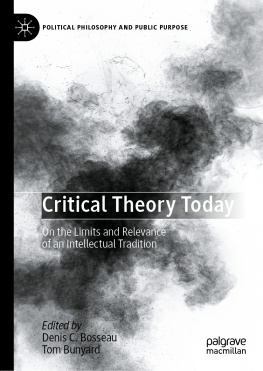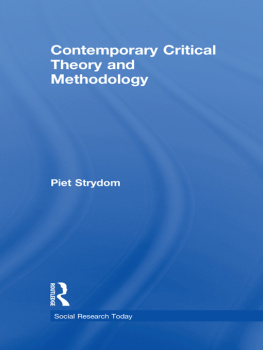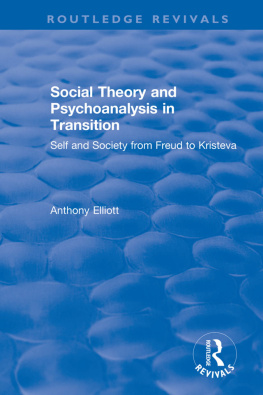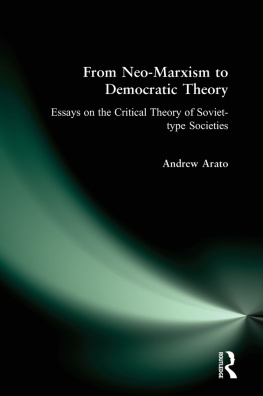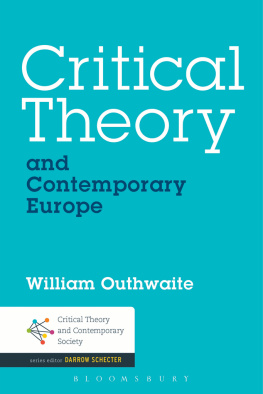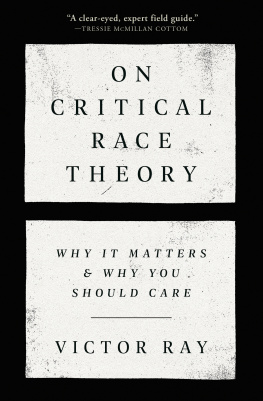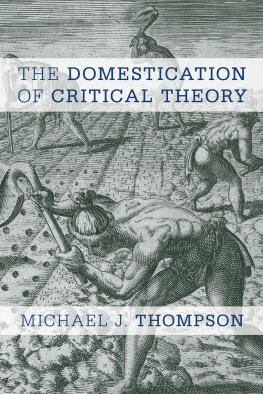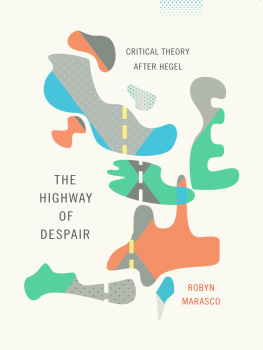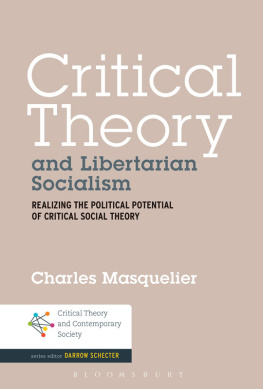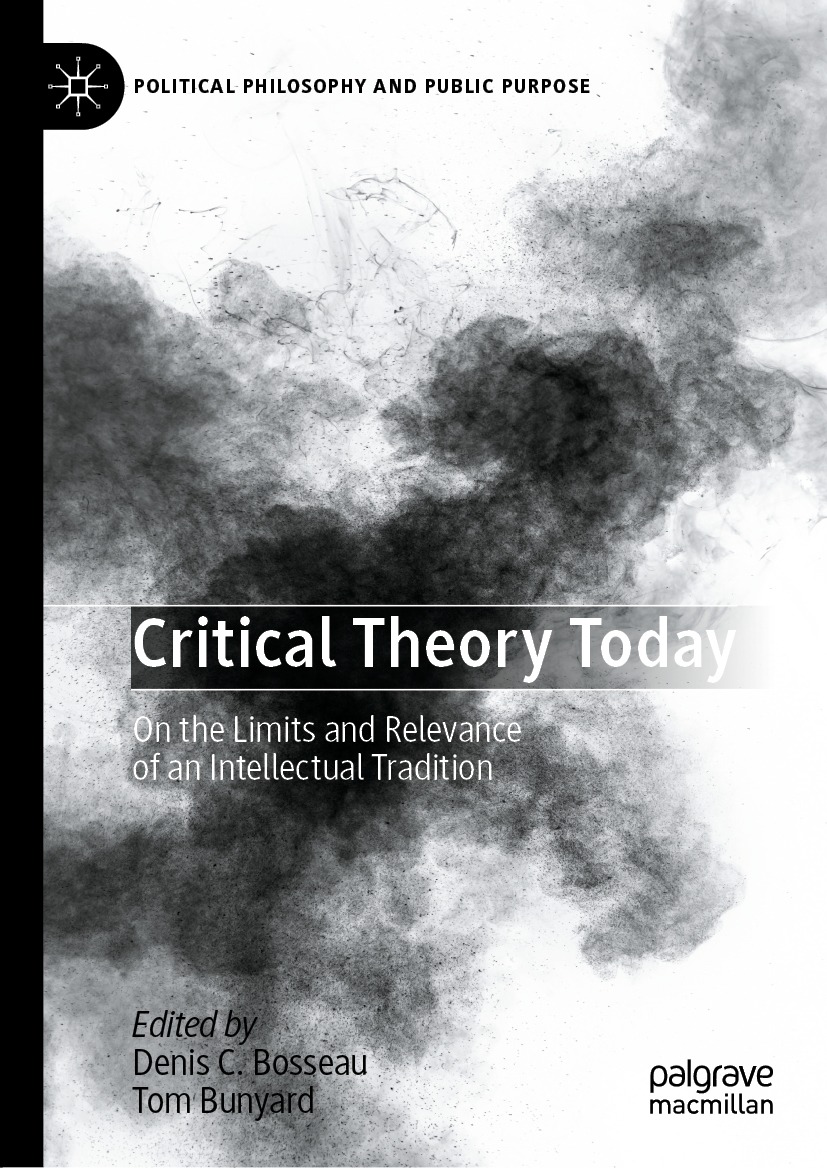Political Philosophy and Public Purpose
Series Editor
Michael J. Thompson
William Paterson University, New York, NY, USA
This series offers books that seek to explore new perspectives in social and political criticism. Seeing contemporary academic political theory and philosophy as largely dominated by hyper-academic and overly-technical debates, the books in this series seek to connect the politically engaged traditions of philosophical thought with contemporary social and political life. The idea of philosophy emphasized here is not as an aloof enterprise, but rather a publicly-oriented activity that emphasizes rational reflection as well as informed praxis.
Editors
Denis C. Bosseau and Tom Bunyard
Critical Theory Today
On the Limits and Relevance of an Intellectual Tradition
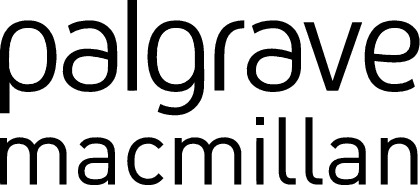
The Palgrave Macmillan logo.
Editors
Denis C. Bosseau
Social & Political Thought, University of Sussex, Brighton, East Sussex, UK
Tom Bunyard
Humanities, University of Brighton, Brighton, East Sussex, UK
ISSN 2524-714X e-ISSN 2524-7158
Political Philosophy and Public Purpose
ISBN 978-3-031-07637-4 e-ISBN 978-3-031-07638-1
https://doi.org/10.1007/978-3-031-07638-1
The Editor(s) (if applicable) and The Author(s), under exclusive license to Springer Nature Switzerland AG 2022
This work is subject to copyright. All rights are solely and exclusively licensed by the Publisher, whether the whole or part of the material is concerned, specifically the rights of translation, reprinting, reuse of illustrations, recitation, broadcasting, reproduction on microfilms or in any other physical way, and transmission or information storage and retrieval, electronic adaptation, computer software, or by similar or dissimilar methodology now known or hereafter developed.
The use of general descriptive names, registered names, trademarks, service marks, etc. in this publication does not imply, even in the absence of a specific statement, that such names are exempt from the relevant protective laws and regulations and therefore free for general use.
The publisher, the authors, and the editors are safe to assume that the advice and information in this book are believed to be true and accurate at the date of publication. Neither the publisher nor the authors or the editors give a warranty, expressed or implied, with respect to the material contained herein or for any errors or omissions that may have been made. The publisher remains neutral with regard to jurisdictional claims in published maps and institutional affiliations.
Cover illustration: Jose A. Bernat/Bacete/gettyimages
This Palgrave Macmillan imprint is published by the registered company Springer Nature Switzerland AG
The registered company address is: Gewerbestrasse 11, 6330 Cham, Switzerland
Acknowledgements
Many of the essays collected in this volume were initially produced as conference papers. They were delivered at an event titled Critical Theory in (a Time of) Crisis that was held at the University of Brighton in November 2019. This event was funded by the Mind Association, and it was organised collaboratively by the Centre for Applied Philosophy, Politics and Ethics at the University of Brighton, and by the Centre for Social and Political Thought at the University of Sussex. We are very grateful to all who attended and spoke at this event, and to the Mind Association for funding it. Particular thanks are due to Sophie-Grace Chappell at Mind, and to Bob Brecher and Ian Sinclair at the University of Brighton for helping us to organise the conference. Bobs and Ians advice and assistance were invaluable. We would also like to thank Gordon Finlayson and Darrow Schecter at the University of Sussex, and Michael J Thompson for inviting us to collect and present these essays as part of the Political Philosophy and Public Purpose book series.
About This Book
Denis C. Bosseau
Tom Bunyard
This collection of essays grew from a conference titled Critical Theory in (a Time of) Crisis, which was held at the University of Brighton in November 2019. The parentheses in the title were intended to capture the events dual focus. Firstly, we wanted to ask if critical theory, in its contemporary incarnations, was genuinely capable of responding to a world that seemed to be marked with a multitude of impending and ongoing crises; and secondly, we also wanted to suggest that if critical theory proved to be limited in this regard, then it too might be faced with some kind of crisis. The questions and interests that prompted the conference ought to be contextualised. In 2019, Brexit and Trumps election were only three years in the past. Post-truth was still a prominent and relatively new buzzword within the liberal media, and commentators of various kinds were busily trying to explain something called populism. Demagoguery, authoritarianism and new iterations of the political right seemed to be on the rise, as were concerns regarding the ways in which new media technologies might facilitate such political phenomena. All of this was taking place against a background of gross inequalities, unsustainable economic systems, and looming environmental disaster. Taken individually, none of these issues were particularly new; but when taken together, they seemed to indicate that the various pathologies of neoliberalism had engendered a new and peculiarly fraught historical moment. It seemed reasonable to ask whether contemporary critical theory was able to address that moment with any kind of efficacy. Perhaps, we wanted to ask, it might be limited in some ways, due to the degree to which it had evolved as a means of responding to older social formations; perhaps it might itself be marked by a crisis of relevance, due to its limited purchase on the various crises of our times.
These questions were informed by a further concern, which can be introduced by way of reference to Max Horkheimers seminal Traditional and Critical Theory essay of 1937. Traditional theory, Horkheimer claimed, is characterised by the use of largely unquestioned theoretical structures that produce results suited to the needs and nature of a given social context; critical theory, on the other hand, addresses the naturalised assumptions and presuppositions that structure that same social context. But to what extent has critical theory, today, become just such a mode of traditional theory? If we are to consider its contemporary ability to address issues such as those noted above, should we first consider the ways in which its institutional framing might inflect that ability? After all, it now tends to reside almost solely within a university system shaped by instrumental demands (in the UK, we have the REF, the TEF, student fees, etc.), and it tends also to be produced and disseminated in a manner that accords with those demands. Moreoverand this brings us back to questions concerning its capacity to address the presentits approaches and practices have, arguably, become defined by the catchwords and paradigms of the past. That seems odd, given critical theorys history of innovation. The classical work of the Frankfurt School developed against the back-drop of rising fascism; French post-structuralism evolved in the 60s, and took on its defining forms in the aftermath of 1968; the post-Marxism of the 1990s responded to the fall of actually existing communism, and to the impasses of the traditional Left. All responded to their circumstances in a manner that entailed a break with the intellectual trends of their day (positivism, phenomenology, humanism, Hegelianism, classical Marxism, etc.). Does it follow that contemporary work in critical theory should follow suit? To what degree is it doing so already? Or can find newfound salience be found in older material?

